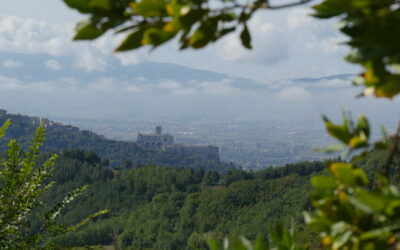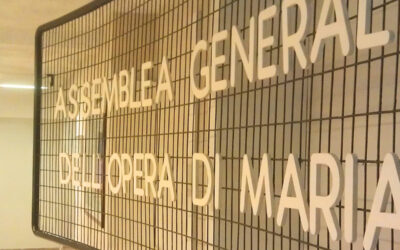From the Vatican Radio News service of December 23, 2004 Q: During these days of your Conference, the attendance of Bishops from different Churches has been more numerous than expected, I believe. How would you explain this? A: I would attribute this to the fact that Istanbul, formerly Constantinople, this land, Turkey itself, is a country which has ancient Christian roots. It is rich in history and has numerous sacred places. This was what attracted a great number of bishops to come here and live an experience of unity in this very place. It has been a special meeting, a very enriching experience which has renewed us spiritually as we came in contact with early Christianity: with the Orthodox, the Syrian Orthodox, the Apostolic Armenians and Catholics of different rites. It was an absolutely exceptional and extraordinary event, something to praise God for. Q: Your Conference took place right at a time when historic events were happening in the relationship between Constantinople and Rome, to be precise, the return of the relics of two great Fathers of the Church, St. John Chrysostom and St. Gregory Nazianzen, so-called “the Theologian.” Moreover, you have had more direct contacts with the Patriarch. Could you tell us the significance of this conference for you? A: The return of the relics after so many centuries was, for the Christians here and for Turkey as well, a very powerful and deeply moving sign of hope. I was impressed by how much the bishops of the Anglican and Evangelical-Lutheran Churches – who were assisting for the first time at the veneration of relics by Orthodox and Catholic Christians – appreciated this gesture. Patriarch Bartholomew I offered deeply touching remarks, thanking the Pope and the Roman Curia for such an exceptional gesture. Q: And the Ecumenical Patriarchate and the Syrian Orthodox, Armenian and Anglican communities which you visited? What did the bishops’ presence signify for them? A: All these communities experienced the unity that there was among us. They appreciated the liturgies, the “quality” of what was shared. It was extraordinary for them to see bishops of many Churches united in prayer and they openly expressed their joy. It was, for them, a new calling to unity: if the bishops are together, then also the People of God should be together. I think that all these communities received great encouragement for what the future has in store. Q: During the ceremonies of St. Andrew’s Feast, Patriarch Bartholomew I spoke about the primacy of that spiritual unity which we are all called to live in Christ, according to the model of the Holy Trinity. That’s quite a challenge! A: I think that what we experienced here in Constantinople, which many Christians of different Churches are experiencing together in living the Focolare spirit of unity, with Jesus in the midst, is an example, a hope of that unity which already exists among the different Churches in communion, in the love of the Trinity. Among us, in fact, there is great love and respect for every Church, for every tradition. I saw how the Evangelical-Lutheran, Anglican and Catholic bishops appreciated the icons, the relics, and the Orthodox liturgy – which is very beautiful but it’s also sometimes quite long. All this has been an example of the unity which already exists and should spread in all the Churches, in the whole Christian world. Love can make the unity among Christians progress. If we bishops and the leaders of the Churches bear this witness, first of all – and the gift of the relics is a very powerful sign – then all this will be assimilated by the consciences of our respective Churches. Q: What is the root of your experience of unity? A: The root of unity is the love of God, the love of Christ which unites the whole world in the Holy Spirit, above all the Christians who unite in his name. This is why we have Jesus, Jesus in our midst, in us and in our hearts. The spirituality of the Focolare Movement is the spirituality par excellence of the Church of Christ, of every Church. I keep underscoring again and again that it is not something that pertains only to this Movement, nor to the Catholic Church alone. The unity proposed by Chiara Lubich and the Focolare Movement is for the Orthodox, the Lutheran, the Anglican Church too, simply because it is evangelical, it summarizes, embraces the whole Gospel, the essence of the Gospel which is the love of God, unity in Christ through the Holy Spirit. Q: Your pilgrimage in this land of early Christianity also included Nicea. What were your impressions there? A: We lived through a deeply moving experience in Nicea. It is a place that bears witness to the undivided Church. In 325, the first Council – which formulated the first part of our Creed – was held there. In Nicea we all signed a pact of mutual love among us bishops and we pledged – and as bishops we did it also on behalf of our local Churches – to work for the re-establishment of full and visible communion. It was a very powerful sign and a hope for the future. Q: Where and when is the next appointment? A: Next year we will hold our meeting in Bucharest, Rumania. We will meet in an ex-communist country which, after suffering through 50 years of repression, has regained its freedom, and even that came at a great price. Our meeting hopes to be a source of encouragement not only for the Orthodox, but for the other Christians of Rumania as well. There is an active community of Catholics there, of Evangelical-Lutherans and Calvinists as well. Q: It might be an occasion to meet Patriarch Teoctist. A: Yes, certainly it will be an occasion to meet Patriarch Teoctist and the leaders of the Catholic and Evangelical-Lutheran Churches, as well as a number of other bishops. It will be a chance to acquaint them with the role played by the Focolare Movement in fostering unity. Here in Constantinople, we heard the moving experience of a Rumanian Catholic priest who took upon himself the commitment of regularly gathering together Orthodox, Catholic, Reformed and Lutheran priests. Such meetings have changed the face of that city. Now they pray together and work together in a more spirit-filled way. I have come to appreciate the way the Focolare Movement shows great respect for each confession: it helps one rediscover his roots in his own Church; each priest, each Christian deepens his or her own tradition, and this is something extraordinary that somehow helps change the situation in a very positive way. 22-12-2004
Take a sense of family everywhere
Take a sense of family everywhere




0 Comments